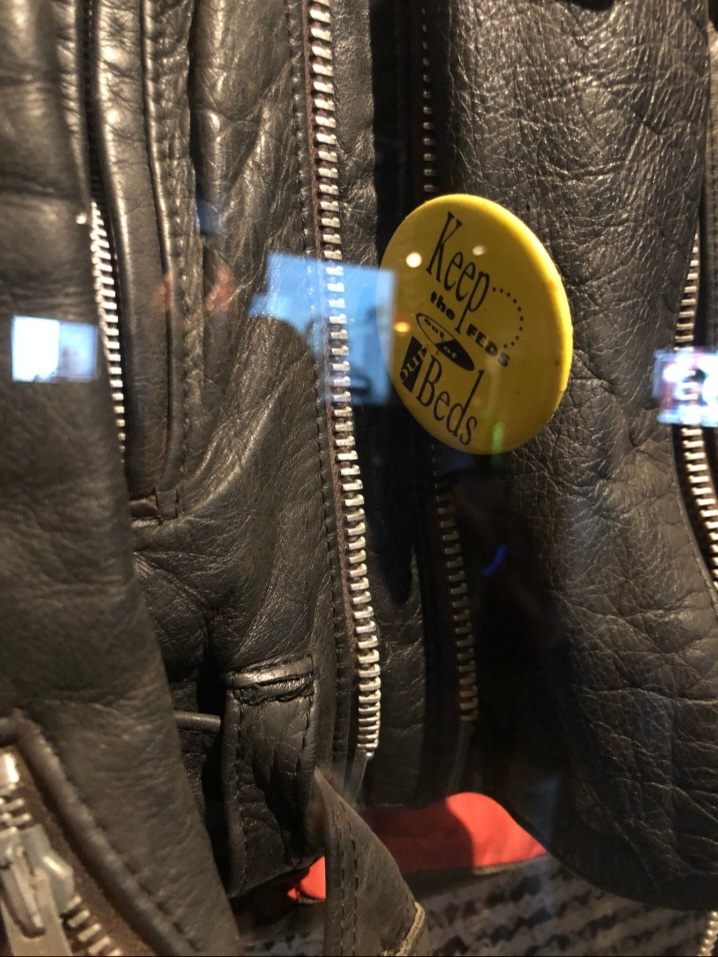Community-wise there’s !WomensStuff@lazysoci.al
The normal person thinks that because the last 20 people survived, the next patient is very likely to die.
The mathematician considers that the probability of success for each surgery is independent, so in the mathematician’s eyes the next patient has a 50% chance of survival.
The scientist thinks that the statistic is probably gathered across a large number of different hospitals. They see that this particular surgeon has an unusually high success rate, so they conclude that their own surgery has a >50% chance of success.
not() is a base function that negates what’s inside (turning True to False and vice versa) giving it no parameter returns “True” (because no parameter counts as False)
Actually, not is an operator. It makes more sense if you write not() as not () - the () is an empty tuple. An empty tuple is falsy in Python, so not () evaluates to True.
It’s a joke.
Another picture:

And a better shot of the yellow pin, since it's at a weird angle:

Link to the music video in which the jacket appears (albeit without the pins).
Are upgrades to the newest and still supported macOS version free?
All of Apple's macOS updates are free, and have been since 2013. They have exactly one major macOS update per year, with smaller bugfix releases interspersed. However, Apple drops official support for their computers after about 5 or 6 years. This is exactly the same as their update system for iOS and their other platforms. Apple is able to provide updates for free due to income from hardware sales, which Windows obviously isn't in the same position to do.
macOS 14 Sonoma (the latest version) is officially supported for all Macs made since 2018. You can still install modern versions of macOS on unsupported devices, but you have to use third-party tools such as Open Core Legacy Patcher.
What other applications do macOS users get for free?
Apple has quite a few free apps, many of which come pre-installed with macOS. These include Safari (web browser), Messages, FaceTime (video-calling app), Maps, Pages (Apple's version of MS Word) and more. Here's a full list. You may recognise many of these from iOS. Controversially, most of these pre-installed apps receive updates with the OS, and can't be updated without also updating the OS. Therefore, all of these apps receive free updates for as long as Apple updates the OS.
Apple also sells a handful of paid apps for a one-time charge, the most well-known of which is Final Cut Pro. They also have subscription services for some of their other apps, such as Apple Music.
Do macOS users get more free apps if they create an account with apple?
Some features require an "Apple ID" (Apple account). Some examples:
- Purchasing apps from the App Store or buying one of Apple's subscriptions. Free apps can be downloaded without an Apple ID.
- Access to iMessage, which is Apple's messaging protocol. It's somewhat similar to the RTS protocol feature-wise, but it's a closed system (in true Apple fashion). If you don't sign in, you can still text others via SMS/MMS.
- Access to AirDrop, which allows you to send files to nearby Apple devices via BlueTooth.
- The ability to send and receive texts and calls from your Mac, if you have an iPhone.
I’ve understood adobe and MS-Office are active at the mac app store. How does apple’s business model work?
Some apps are available on the App Store, and others are downloaded from the developer's website. Most developers make their apps available from the web rather than the App Store, because Apple charges money to offer apps on the App Store. It costs $99 per year, plus 15-30% of the money made from people buying the app or from in-app purchases.
Microsoft Office apps are available from the App Store, but you have to download most Adobe apps from Adobe's website. As mentioned above, this is to avoid the 15% cut that Apple would probably take from Adobe's subscription revenue if it was available on the App Store.
Do I buy the app, pay once and get free updates and upgrades indefinitely? or do I have to pay them a monthly fee?
Apps are either free, have a one-time charge, or are subscription-based. Apps downloaded from the App Store are updated automatically, and most will give you free updates forever. The developer gets to choose which OS versions they support, and can publish updates for your device even after that device stops receiving OS updates from Apple.
Can LibreOffice be used on a macOS?
I don't use LibreOffice personally, but their website says it's supported. Another alternative is Apple's equivalent of MS Office, which is free and supports MS file types.
Is there an emulator to use ubuntu or windows based apps on a mac? Are they free of charge?
There are emulators, yes. Wine is a free popular emulator for Windows apps. You may have used Wine on Linux before. Linux and macOS share some similarities on the technical side, because they are both based on UNIX (unlike Windows).
I personally use Whisky, which is Wine-based and has a nice GUI. It should be noted that not all windows apps will work through Wine, but I've had success with many apps and even some games (most recently Lethal Company, which I was able to run at a stable 120fps using Whisky).
Intead of emulating a single app using Wine, you can also emulate Windows entirely if you want to. I've used Virtual Box to do this in the past. Parallels Desktop is a sleeker alternative that many people use, but it's subscription based. I personally haven't tried it.
On older Macs (that have Intel chips) you can install Windows directly alongside macOS. Modern Macs (ones with Apple Silicon chips) can't run Windows natively, but there is a version of Linux (Asahi Linux) that you can install.
I hope this answers your questions :)
This is Philomena Cunk, a satirical BBC news reporter. They produce videos in which she interviews historical experts but only asks them stupid questions like “Were the pyramids built from the ground up, or from the top down?”
They just don’t want you to see the tongues licking the dishes
















Yep, this will cause a stack overflow.